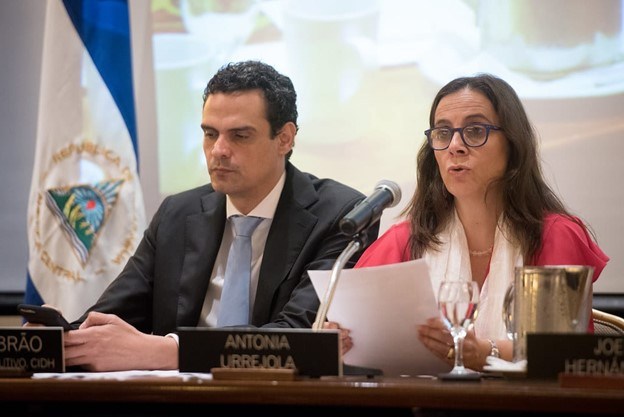
Former IACHR Commissioners Antonia Urrejola and Paulo Abrao highlight the victims’ demands. Obtaining justice will depend on the democratic transition model.
By Carlos F. Chamorro (Confidencial)
HAVANA TIMES – Five years after their visit to Nicaragua in May 2018 as part of the mission of the Inter-American Commission on Human Rights (IACHR) of the OAS, jurists and human rights defenders Paulo Abrao and Antonia Urrejola emphasized the worsening human rights crisis and weighed the hope of achieving justice as part of a democratic transition process.
“The imposition of a totalitarian regime that does not even allow documenting human rights violations has created an atmosphere of fear, silence, and impunity in which Nicaragua resembles a giant prison,” says Antonia Urrejola, former rapporteur for Nicaragua at the IACHR.
Brazilian jurist Paulo Abrao, former executive secretary of the IACHR, believes there is hope for justice. “Hope lies in the adoption of measures and actions within and outside the country by the opposition to achieve that historic moment of democratic transition that will expand the possibilities of justice,” emphasizes Abrao.
Urrejola highlighted the role that organizations of victims’ families are already playing in documenting murders committed by state repression. Still, she warned that in Nicaragua, it will be necessary to “reformulate the Judiciary, which is intervened by the Ortega Murillo regime.” The model and scope of political transition “will determine in the immediate future the level of justice” that can be achieved, Urrejola pointed out.
Abrao emphasized that there are already cases “being processed within the Inter-American Human Rights System, the cause of crimes against humanity justified by universal jurisdiction in Argentina, and the case of Brazilian Rayneia (Lima) in Brazil.” However, the possibilities of justice for Nicaragua in international courts is still being studied.
In an interview with Esta Semana and CONFIDENCIAL, the former IACHR commissioners highlighted the role of Truth Commissions in justice processes and warned that crimes against humanity offenses not subject to a statute of limitations and, therefore, cannot be amnestied. Urrejola argued that in political transitions, there is no “exchange” between justice and democratic stability, although there can be a “graduality.” “Experience shows that when these things start to be exchanged, sooner or later, they end up appearing anyway, and this vicious circle starts again. But we have seen in different countries that, according to conditions, what weak democracies do is go step by step. That is part of the transition processes, which does not mean sweeping everything under the rug,” said the former Chilean foreign minister.
Nicaragua: A


